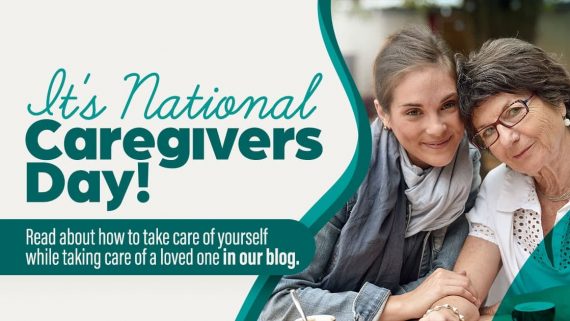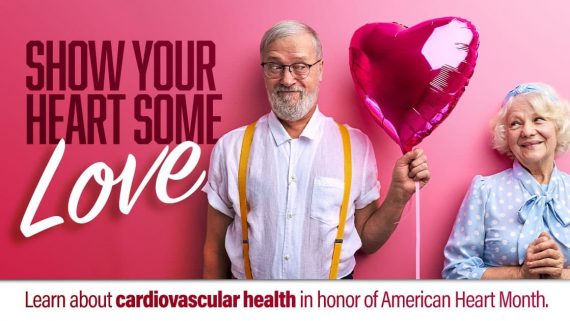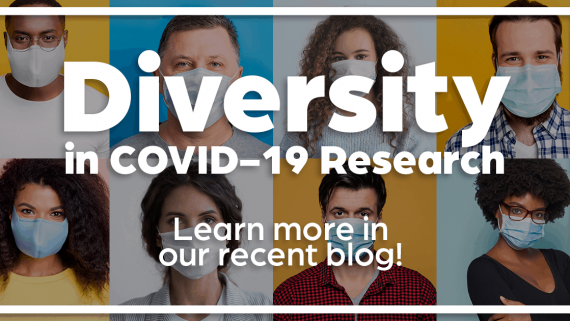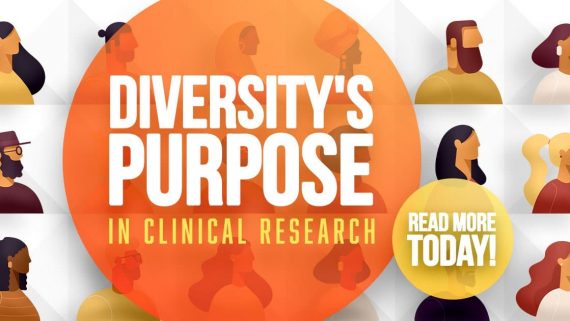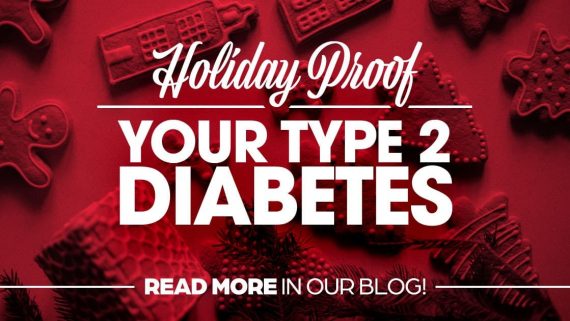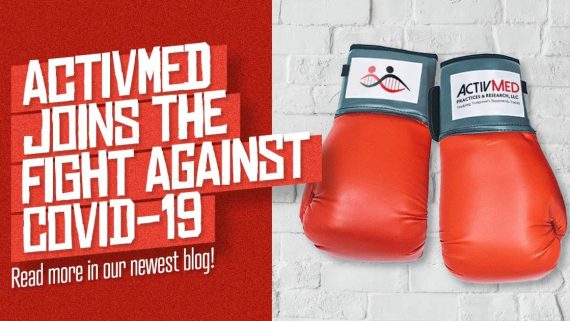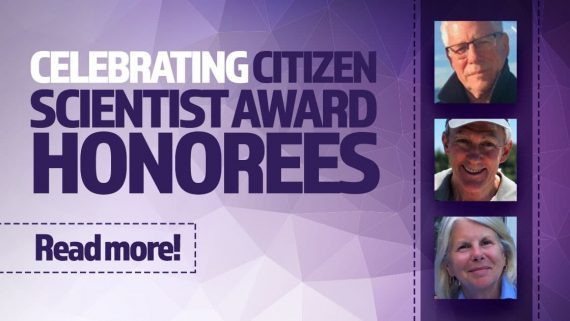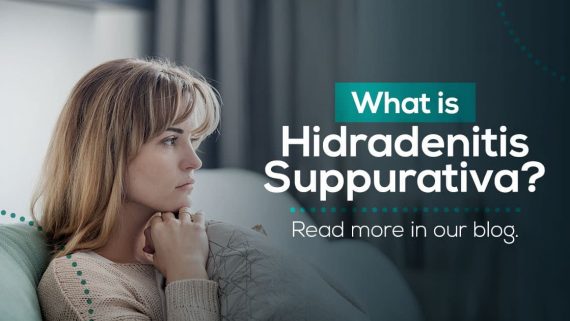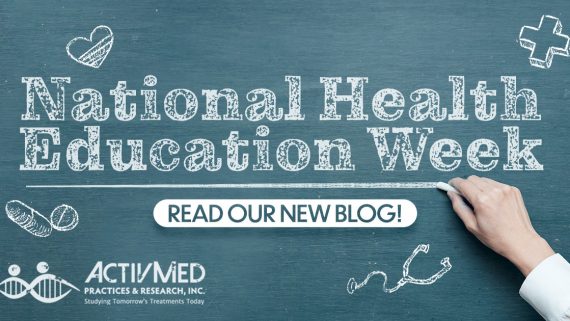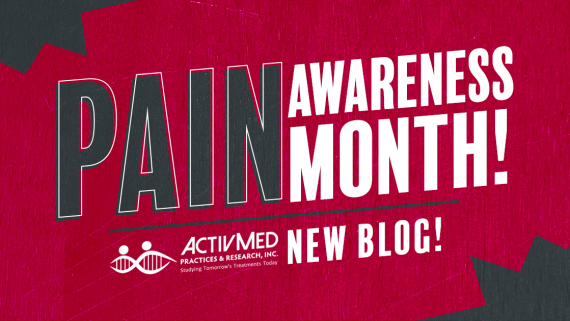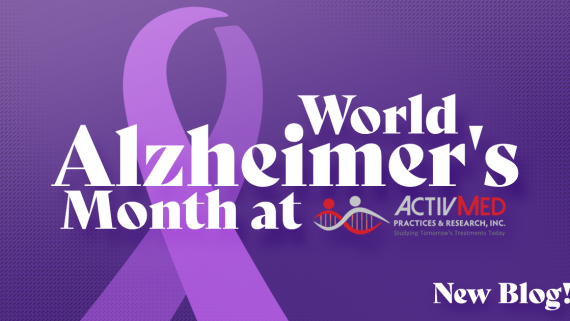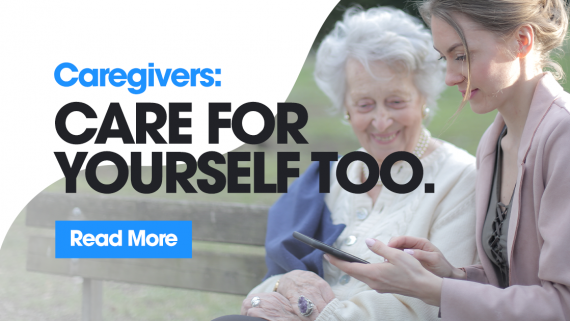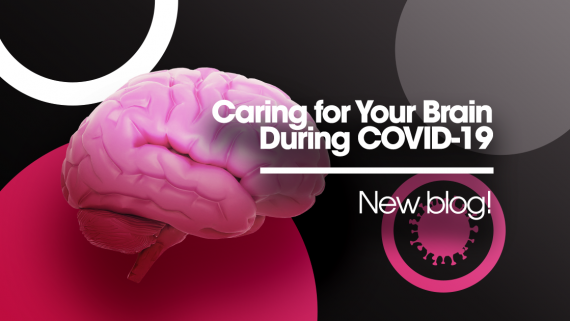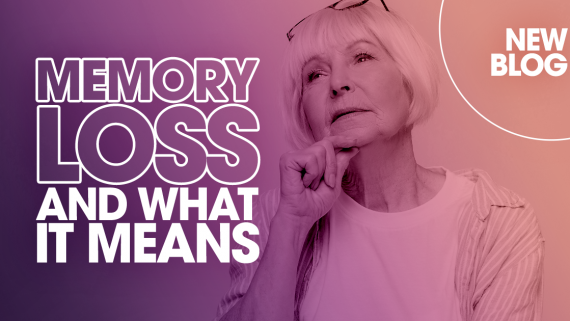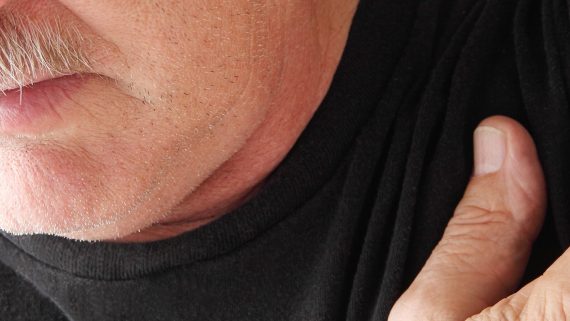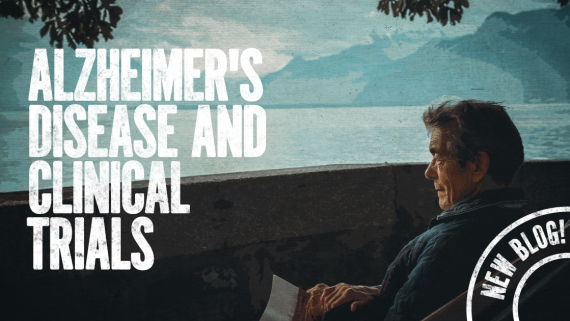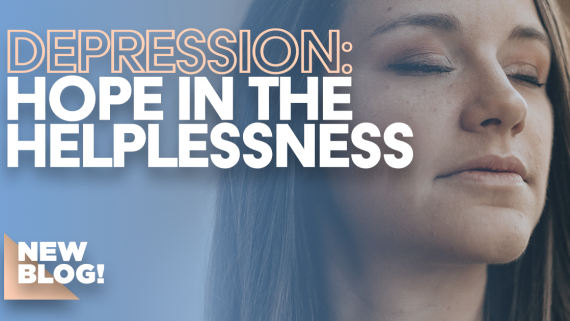Did you know that nearly 66 million Americans serve as caregivers to their parents and other loved ones? February 18th is National Caregivers Day, and in honor of our caregivers, we are shining a light on their work and exploring the different ways we can show them our appreciation.
What Does a Caregiver Do?

A caregiver is a paid or unpaid member of a person’s social network or a healthcare provider who helps them with activities of daily living. There are different types of caregivers. The types are family caregiver, professional caregiver, independent caregiver, private duty caregiver, and informal caregiver. Here is a list of duties that a caregiver might engage in during a typical month::
- Six days a month they spend grooming, feeding, dressing, bathing, and walking.
- 13 days a month they spend commuting, cleaning, doing the laundry, monitoring medication, shopping, and cooking special meals for a loved one.
- 13 hours a month are spent coordinating visits with physicians, researching symptoms and diseases, and managing finances.
Honoring Caregivers
While National Caregivers Day is the perfect time to acknowledge the dedicated individuals who work as caregivers, it shouldn’t end there. Showing your appreciation throughout the year with just a simple “thank you” can help lift the spirit of these individuals who work tirelessly to provide high-quality care to the loved ones in your life. You could even thank them over a simple note, letter, or email. Show your support on social media and use the hashtags, #thankacaregiver and #nationalcaregiversday, to share your story. A small gift to your family caregiver(s) would be an excellent idea, too. Here are some suggestions:
- Books (affirmations, mindfulness)
- Gift cards to their favorite store
- Baked goods
- Hand creams, aromatherapy diffusers, or other bath and spa related products
- Donation to a worthy cause in the name of the caregiver

If your loved one has been diagnosed with Alzheimer’s disease, clinical research studies may be an option. Research studies help advance prevention and treatment opportunities for Alzheimer’s and other chronic conditions. To learn more about our enrolling Alzheimer’s studies at our Lawrence, MA location, click here or call us at (978) 655-7155.
Sources:
https://www.nahc.org/national-caregivers-day/
Heart disease is the leading cause of death for men, women, and people of most racial and ethnic groups in the United States. In a person’s lifetime, their heart will beat on average over 3.5 billion times. February signifies the start of American Heart Month, which means there’s no better time to show your heart some love by making healthier choices to protect it.
Why You Need a Healthy Heart
The heart and circulatory system make up the cardiovascular system. When the heart expands and contracts, it moves the blood into each chamber, adds oxygen, and sends it back out into the body. Each cell and organ (including the heart) in our body depends on a steady flow of oxygen-rich blood and nutrients to function correctly.
Cardiovascular disease is an umbrella term for various conditions that affect the structure and function of the heart. These include:
- Blood vessel diseases
- Damage to the heart from infection
- Congenital heart diseases
American Heart Month

Most diseases that affect the heart are preventable. Each February, American Heart Month is celebrated by motivating Americans to adopt healthy lifestyles to prevent heart disease. Here are some ways you can protect your heart:
- Talk to your doctor about your blood pressure, cholesterol, and A1C
- Reduce your sodium intake, and increase the quantity of fruits, vegetables, and whole grains in your diet
- Be physically active
- Maintain a healthy weight
- Don’t smoke
- Incorporate techniques to help manage stress
- Learn how to cope with chronic conditions, like diabetes effectively
Visit The National Institutes of Health’s (NIH) American Heart Month webpage to explore additional heart-healthy self-care resources and ways to help inspire others to protect their heart.
Cardiovascular Studies
Safe and effective treatment options for individuals living with heart disease are vital to successfully managing these conditions. When potential new options are developed to diagnose, treat, or prevent a disease, research studies help make sure they are safe and effective. Patient volunteers who participate in these studies make advances in medicine possible.

Help spread the love and brighten the future of heart disease as a clinical research volunteer. At ActivMed Practices & Research, we have several cardiovascular studies enrolling at our Methuen, MA location. Call us at (978) 655-7155 to learn more or visit our website today!
Sources:
https://www.cdc.gov/heartdisease/about.htm
https://www.nhlbi.nih.gov/education/american-heart-month/about
Medical heroes are all around us. Though their contributions aren’t always well-known, most of us have benefitted from their role as clinical research volunteers. Clinical trials provide a pathway to medical advances, and study volunteers help make that possible. You can be a clinical trials hero today too. Here’s how.
Clinical Trial Summary
Clinical research enables advances in medicine in two main ways. First, we can better understand a condition and what factors influence it in different populations (gender, age, ethnicity, etc.). The more we know about a disease, the better we can treat it.

Second, research studies help evaluate the safety and effectiveness of newly developed therapies as they interact with the human body through research volunteers. Each potential treatment must successfully complete all clinical trial phases and FDA approval before it’s available to the public.
Not Like the Comics
Medical heroes aren’t like the comics, but we assure you, their impact saves lives. There’s no exaggeration here. Every prescription medication, surgical device, therapeutic approach, and diagnostic tool available on the market today is because of research studies and the volunteers who participate in them.
There are millions of people who suffer from diseases where there is not yet a cure – including Alzheimer’s, certain cancers, and Lupus, to name a few. Medical Heroes play an integral role in combatting and curing diseases like these.
Who can be a Medical Hero?
Medical heroes may be ourselves or people we know, such as neighbors, co-workers, family members, and friends. All ages, ethnicities, genders, and individuals from different backgrounds are needed for optimal diversity—those living with specific conditions and those generally in good health. Unfortunately, some situations do prevent some people from participating in research. Their voices carry on, though, in every able person who joins a research study.

We’re Holding Out for Clinical Research Heroes
The team here at ActivMed Practices & Research would like to extend a heartfelt thank you to our past, present, and future research volunteers. Your partnerships have allowed us to continue our mission of advancing medicine through the clinical trials we conduct here. To see our list of enrolling study opportunities, visit us online to learn more, or click here for the contact information of the location nearest you.
Having atopic dermatitis (AD) causes your skin to become very sensitive. Most of the time, that heightened level of sensitivity influences the clothing you wear, as well as the laundry detergents, soaps, and cleaners you use. However, the good news is that you can still be fashionable without triggering an AD flare-up.
What is Atopic Dermatitis?
Atopic dermatitis, commonly known as eczema, is a chronic condition that leaves your skin looking red and feeling itchy. Since it is chronic, symptoms may worsen at different times and cause flare-ups. There are many factors that trigger flare-ups including clothing, lotions, and soaps.
Natural Fibers Are Your Best Friend
Choosing clothing made from natural fibers, such as cotton, bamboo, or silk, can help ease the sensitivity of AD. For example, it is good to wear clothing that is composed of 100% cotton. Cotton is being breathable and cool. Bamboo and silk are also considered to be quite soft, breathable, and effective. These fabrics are good at regulating the temperature of the body. Silk can be worn under clothing as a barrier to protect the skin from tighter fitting clothing.
Hypoallergenic Jewelry is a Must
Many people who suffer from atopic dermatitis have an allergy to nickel, so avoiding jewelry made of nickel is crucial. Choose jewelry that is hypoallergenic, such as ones that contain:
- Stainless steel
- At least 18-karat gold
- Sterling silver
- Polycarbonate plastic
These materials are less likely to cause flare-ups from increased skin irritation.
Managing Atopic Dermatitis Flare-Ups
You can still be comfortable and fashionable while living with AD. A simple search on the internet can help you find clothing and accessories that are easy on the skin. To minimize the frequency of AD flare-ups, it is best to identify and reduce your exposure to the various factors that trigger them. In fact, this step is vital in effectively managing the condition.

Like any chronic condition, learning everything you can about AD is integral to your overall health. Clinical studies are a great way to learn more about your condition from healthcare experts with specialized training in AD. As a result, participating in studies provides patients with the tools necessary to improve their self-care and the management of their AD.
Interested in learning about our enrolling AD clinical research studies? Click here and explore our Portsmouth, NH studies.
Sources:
https://atopicdermatitis.net/living/wear-best-clothing-fabric
https://eczema.org/information-and-advice/triggers-for-eczema/clothing-and-eczema/
As we pass the first anniversary of the first reported case of COVID-19 in the U.S., a lot of uncertainty remains despite the tremendous progress. Diversity has been a challenge long before the coronavirus, and it’s vital to end the disproportionate impact in communities of color. As clinical research efforts continue to deliver new ways to detect, prevent, and treat COVID-19, study participants’ diversity will be more critical than ever.

Importance of Diversity in Research
Genetics and biological makeup differ for every person. For vaccines, this means how antibodies are produced in one ethnic group can vary from others. Since the pandemic began, data gathered shows much higher rates of infection, hospitalization, and death in people of color.
Diversity also covers various age groups, gender, and backgrounds. Older individuals and those with underlying health conditions are more likely to suffer severe symptoms, hospitalizations, and death as well. The populations with the most significant risk stand to benefit the most from the new possibilities being developed for COVID-19. At the same time, they need to be tested in these groups to ensure they are safe and effective for everyone.
Disparity Causes
Historical mistreatment of minority populations in research studies fuels mistrust and prevents some from participating. Though safeguards, ethical laws, and oversight by the FDA have made research studies much safer, the past is still fresh in minds. Others feel they lack the tools to make it to appointments due to lack of transportation, inability to leave work early, childcare needs, and so on. The reality is that many studies offer options to help with those challenges, such as reimbursement for time and travel, transportation help, and extended hours.
By talking with the study office, you can learn more about the study, potential risks, and possible benefits. The commitment for each study varies. A vaccine study may last two years, while an antibody study may be one visit for example. While there are criteria for each that must be met, flexibility of choice is always a bonus. Volunteering in clinical research studies is 100% voluntary throughout the entire process. You can end your commitment at any time in the event you cannot continue.

ActivMed Practices & Research is proud to be a part of history in the fight to end COVID-19. Our site participated in the large AstraZeneca vaccine study, as well as other antibody test studies. Get further details about enrolling COVID-19 studies here.
Without the selfless gift our volunteers offer, the progress made thus far wouldn’t be possible. To learn more about volunteering or view a current list of enrolling studies at each of our sites, visit our website.
References:
https://hub.jhu.edu/2020/11/30/diversity-covid-19-vaccine-trials/
https://www.henryford.com/blog/2020/11/diversity-in-vaccine-trials
Clinical research studies can be broken down into two categories. Interventional and Observational studies. Interventional studies are where a medication or device intervenes to prevent or treat a disease. Observational studies typically do not involve an intervention, although on occasion they may involve interventions that are a part of routine care, rather than assigned by the investigator. In a world fighting back against COVID-19, observational studies are being done to see if just a few drops of blood from a finger stick can be used to detect if an individual has antibodies to COVID-19, potentially making testing more available and safer during the pandemic.
Observational Studies
Observational studies are where researchers observe the effect of a risk factor, diagnostic test, treatment, or other intervention. Two common types are cohort and case control. A cohort is any group of people linked in some way, such as an age group, for example. Case-control studies identify people with a pre-existing health problem (cases) and a similar group without the problem (controls) and then compare them.

For COVID-19, observational studies help us learn more about the virus. In turn, this information is used to find better ways to detect, treat, and prevent COVID. Observational studies are a benefit not just to individuals affected by these conditions but also to society.
Finger Stick and COVID-19
Testing for the virus seems to have come full circle, from long lines at a few places to drive through sites and emailed results. While we’ve come a long way, there is still a need to diagnose COVID-19 quicker and safer. Finger stick testing is a blood test done by pricking your finger and collecting a few drops of blood. It is similar to what people with diabetes use to test their blood sugar levels.

Finger stick testing is also being evaluated to determine if an individual has COVID-19 antibodies as an observational study. ActivMed Practices & Research has joined the fight against COVID-19 and has participated in an observational study and a vaccine study for this virus. To learn more about how you can get involved, contact us for more information at (603) 319-8863, or visit our enrolling studies page.
References:
https://www.iwh.on.ca/what-researchers-mean-by/observational-vs-experimental-studies
When it comes to improving how we detect, manage, and prevent a medical condition, discovering new options is only the beginning. Before it can be made available to the public, each must be thoroughly tested on humans in studies called clinical trials. The diversity in the volunteers who participate plays a vital role in clinical research we can’t afford to do without.
Diversity is More than Race

Diversity means more than a racial or ethnic background. While this is part of it, age, gender, demographics, and lifestyles are others. Why are these things important? Because potentially new drugs, devices, and therapeutic approaches should be studied in the population of people they are meant to help. For example, being over 45 and in specific ethnic groups are some of the factors that increase your risk of developing diabetes.
We could relate these to traditional cuisines or another related cultural custom. We have some answers, but there is still more to learn before an exact cause is found. Diversity makes treatments safer and more effective for everyone.
Diversity’s Role in COVID-19 Vaccine Studies
There are many different types of research studies. Vaccines come to mind as we continue the fight against COVID-19 and marvel as the first vaccines doses are administered. It won’t be available to everyone at first, though. Healthcare workers, older adults (65 and up) and those at higher risk of developing more severe symptoms are among the first groups slated for vaccination. Pre-existing health conditions can put adults of any age at increased risk. Some examples are:
- Cancer
- Chronic kidney disease
- COPD (chronic obstructive pulmonary disease)
- Heart conditions, such as heart failure, coronary artery disease, or cardiomyopathies
- Immunocompromised state (weakened immune system) from solid organ transplant
- Sickle cell disease
- Smoking
- Type 2 diabetes mellitus
- Obesity
COVID-19 Vaccine Studies at ActivMed Practices & Research
There are over 400,000 registry participants in coronavirus related research studies. 19% represent ages 65-74, and 4% are over 75. In a virus where 80% of related deaths are age 65 and older, the numbers are concerning. Regardless of age, volunteering in clinical research allows you an opportunity to ensure the safest and most effective treatments for future generations.

To learn more about the COVID-19 vaccine studies currently enrolling here at ActivMed Practices & Research, contact our Portsmouth, NH location at (603) 319-8863, or visit our website.
References:
https://www.aarp.org/health/conditions-treatments/info-2020/range-of-subjects-in-vaccine-trials.html
When you have type 2 diabetes (T2D), you become accustomed to monitoring the foods and drinks you put into your body. It takes dedication, consistency, and sheer willpower to manage this, and a lot of those diagnosed remove temptations in their homes for added success. Then come the holidays peppered with things that drive up blood sugar levels and threaten a diabetic’s delicate management system. It is a sore spot for diabetes patients around the globe. The reality is, by attacking it head-on, you can holiday-proof your type 2 diabetes and still keep your condition on track.
Better Choices Without Deprivation
Type 2 diabetes is a condition that affects the body’s ability to use insulin. Insulin is a hormone that is secreted by our pancreas. It has many functions, but concerning diabetes, it helps the cells in our bodies absorb and process sugar (glucose) in the blood for energy. When the body is resistant to insulin, sugars do not get absorbed as they should. This results in high sugar levels, and if this continues for long enough, it can wreak havoc on your body. While our body produces some sugar amounts naturally, most sugar comes from what we eat or drink.

Managing healthy blood sugar levels is achieved by a healthy diet, exercise, and following treatment recommendations made by your doctor. The holidays can be challenging because so much can be out of your control. What’s on the menu and the time you eat can significantly impact your ability to make good choices when added to the constant barrage of temptation. While healthy options are the best, letting yourself be a little flexible will help you get through without the guilt. Here are some simple ways you can set yourself up for success:
- Don’t skip meals to “save up” for the feast.
- Eat as close to your regular mealtimes as possible. If you can’t, eat a small snack to keep blood sugar levels from dropping.
- Offer to bring a healthy dish.
- Cut back on carbs like bread and potatoes if you want a sweet treat.
- Start with vegetables first to curb your appetite.
- It takes 20 minutes for your brain to realize you are full. Eat slowly.
Exercise helps balance out those extra calories and reduces stress. You can walk after a family meal, or pick another way to get that heart rate up, keep movement in your daily schedule.

1.5 million Americans receive a diagnosis of type 2 diabetes every year. Clinical research studies help us learn more about this chronic condition. The knowledge learned paves the way for improved ways to detect, manage, and eventually prevent T2D. We are currently looking for participants to enroll in our type 2 diabetes studies here at ActivMed Practices & Research, LLC. To learn more about these studies at our Methuen, MA location, visit our study website.
References:
https://www.cdc.gov/diabetes/library/features/holidays-healthy-eating.html
https://www.webmd.com/diabetes/features/sweet-holiday-tips-diabetics
Earlier this month, ActivMed announced it is now joining this Phase III study for a potential vaccine against COVID-19. There are currently no available vaccines in the U.S., and safe and effective ones would have a significant public health impact. Further testing is needed through clinical research studies, but every day we edge closer to FDA approval and availability to the public. In the meantime, we must be diligent about following the CDCs’ recommendations for protecting ourselves. November is also National Healthy Skin Month, and nothing goes better with COVID-19 prevention measures than good hygiene.
National Healthy Skin Month
November is National Healthy Skin Month, and it’s fitting the body’s largest organ, the skin, gets some well-deserved attention. Your skin plays a vital role in your overall health by acting as a protective barrier against harmful things in the environment and keeps moisture in. It helps us feel different sensations and protects us from the heat and cold.

To keep your skin functioning as it should, you need to take care of it. Practice good hygiene by cleaning it regularly, wash hands before eating and after being in public, and see a dermatologist if any skin issues persist. Moisturize daily, protect your skin from the sun with sunscreen while outside, and hydrate throughout every day. View more tips from AAD here.
COVID-19 Vaccine- What You Need to Know
While the news of Pfizer and Moderna’s vaccine effectiveness is promising, there are still steps we need to take before the entire public has access to a safe and effective vaccine. Also, these two aren’t the only vaccines in development and testing. Furthermore, additional time is needed to understand the long-term immunity and effects.

There are currently 236 vaccines in development, and around 40 are being tested in clinical research studies. Typically, vaccines take years to develop and test. However, thanks to programs like Operation Warp Speed and FDA fast-tracking, COVID-19 vaccines and treatments get priority and move quickly through the process. Developers in the later stages of research can apply for emergency authorization use, which would make them available sooner if approved by the FDA.
Even if granted, until the vaccines’ manufacturing ramps up, they will be released in smaller quantities, giving vulnerable populations like the elderly or those at high risk of severe complications from COVID priority. Those that remain would see availability open a few months later.
Join the Fight with ActivMed
“Our team at ActivMed looks forward to helping bring a vaccine against COVID-19 and a hopeful end to the pandemic. We hope you will help as we are looking for trial participants. We are trying to provide as safe an environment as possible. We are following CDC recommendations for participant safety. It is through this collaboration that we will be able to conduct this monumental endeavor. Looking forward to seeing you in our Portsmouth, N.H. site!”- Principal Investigator Michael J. McCartney, M.D. and Chief Medical Director at ActivMed.

Are you ready to join the fight against COVID-19? Get started today by visiting our website to learn more about the COVID-19 studies enrolling at our Portsmouth, NH location.
References:
November is recognized as National Alzheimer’s Awareness Month! Every 65 seconds, an American develops Alzheimer’s disease. Approximately 5.7 million Americans are diagnosed with the progressive brain disease that destroys memories and cognitive ability. Family members across the world deal with watching their loved ones gradually lose their memory and eventually their independence.
Clinical research sites, including ActivMed, have invested time and energy in learning more about Alzheimer’s disease, and ultimately working towards a cure. However, the work being done by the professional medical community cannot happen without volunteers. It is the participants in clinical trials who play a crucial role in accelerating Alzheimer’s research.
The Global Alzheimer’s Platform Foundation (GAP) seeks to honor the necessity of clinical trial participants. The organization understands that volunteers are essential in ultimately finding a cure for Alzheimer’s disease. In effort to pay tribute to these volunteers, GAP created an award called the Citizen Scientist Award. This distinction is given to four individuals each year who have participated in Alzheimer’s disease clinical trials.
ActivMed is one of GAP’s research sites and part of the network committed to conducting clinical trials related to Alzheimer’s disease. We celebrate ActivMed’s nominees for the 2020 Citizen Scientist Award! Ted Boileau, Alan Hall and Katherine Hall each represent individuals with Alzheimer’s disease or someone at risk of developing the disease. While their motivations may be different, we are encouraged by their desire to be part of finding a cure for Alzheimer’s. They are three of the countless individuals who participate in clinical research each year.
The nominees for the Citizen Scientist Award were honored at the 7th Annual Trish Vradenburg Gala in October. The virtual event benefited UsAgainstAlzheimer’s, an organization pressing for greater urgency from government, industry and the scientific community in the quest for an Alzheimer’s cure. The organization plays a crucial role in educating the public, mobilizing volunteers and raising the funds that enable Alzheimer’s disease research to progress.

Organizations have the ability to advocate on a national level for Alzheimer’s disease. Additionally, volunteer support of local research helps the medical community work towards identifying a cure for Alzheimer’s disease. Without volunteer participation in clinical research and their encouragement to recruit new volunteers, Alzheimer’s research would not be possible. ActivMed applauds all participants for their willingness to be on the front line in the fight to end Alzheimer’s.
For more information about participating in a local research study, call 978-655-7155 or learn more about which studies are currently enrolling volunteers.
Hidradenitis suppurativa (HS) is a skin condition that causes painful lumps to form under the skin. HS can persist for years, often worsening over time, and can profoundly impact a person emotionally and physically. Hidradenitis suppurativa is not contagious or a result of poor hygiene. There is still a lot to learn about it, but clinical research studies are helping to improve the lives of those affected.
What HS Looks Like

The lumps that form under the skin mainly affect where the skin folds or rubs together like the armpits, groin, buttocks, and breasts. The condition typically starts after puberty and can begin in a single area or multiple ones. Symptoms include:
- Small pitted areas containing blackheads, often appearing in pairs.
- Painful small bumps that persist for weeks or months. These appear in areas where there are many sweat and oil glands or where skin rubs together.
- Tunnels connecting the lumps may form over time. These are slow to heal and may never fully repair themselves. They can also leak pus, which can have an odor.
What Causes HS?

Hidradenitis suppurativa develops when the hair follicles in the skin become blocked. What causes the follicle to become blocked remains a mystery, but experts believe family history, hormones, and immune system issues play a role in its development. HS is most common in women between the ages of 18 and 29. Other risk factors are family history, smoking, and obesity.
How HS is Treated
The symptoms of HS can appear as other skin conditions, so seeing a dermatologist who is trained to know the differences is a no-brainer. There is no cure for HS, but treating it can reduce pain and flare-ups and heal the wounds. Wound care, self-care, pain control, addressing any infection, medication, and in-office procedures are all methods of how HS is treated. In 2015, the first treatment specific to HS was approved by the FDA thanks to clinical research studies and their volunteers’ work. Humira noticeably reduces the number of lumps for those with moderate to severe HS symptoms. Though this is great news, more options are necessary to meet the individual needs of everyone suffering from this disease.

As a research study volunteer, you play a role in bettering the healthcare for those with chronic conditions like HS. If you or a loved one has been diagnosed with hidradenitis suppurativa, clinical research studies here at ActivMed may be an option. To learn more about the HS studies enrolling at our Portsmouth, NH location, click here. For the HS studies at our Beverly, MA location, click here.
References:
https://www.mayoclinic.org/diseases-conditions/hidradenitis-suppurativa/symptoms-causes/syc-20352306
https://www.aad.org/public/diseases/a-z/hidradenitis-suppurativa-treatment
Every 3rd week in October, National Health Education Week kicks off. Ran by the Society for Public Health Education (SOPHE), the events are focused on increasing national awareness on major public health issues. They also work to promote a better understanding of the role of health care. ActivMed shares this passion through our community education events that increase public awareness about clinical research studies. In spite of many events having been canceled in the wake of the 2020 social distancing requirements, indeed, we remain open and focused on education efforts.
Free Health Screenings

ActivMed proudly offers several free screenings that will help you take the actions necessary to live a healthier life. These include:
- Blood Glucose– The test is used to evaluate if your blood sugar levels are in a healthy range.
- Depression– This simple survey is used to assess if you are suffering from depression. Then, we can determine what resources might be available.
- Baseline Memory Screening– The screening determines any changes to your memory. Also, the screen can see if there may be an existing health issue that may need attention.
- Blood Pressure– Will look for any ongoing heart disease or other heart-related conditions.
- Pulmonary Screening– Will evaluate how well the lungs are working.
Dementia Resources
Not all dementia-related memory issues are caused by Alzheimer’s. That’s why we have put together resources for the community. This is in addition to our free baseline memory screening here at ActivMed. Learn more about accessing and using Medicare Part A benefits, treatment options for dementia. You can also watch our resources presentation through our YouTube channel.
Clinical Research Studies

ActivMed, along with its four free-standing clinical research sites, have completed over 800 clinical research studies with associated private practices. Research studies and the volunteers who participate in them help advance how we detect, treat, and prevent major public health issues. Often, volunteers learn more about their condition, receive payment for time and travel, and obtain diagnostic tests and care at no charge. All while helping to advance medicine.
To learn more about how you can participate in one of the free screenings, research, or other events, visit our website.
Reference:
Chronic pain is defined as pain that lasts longer than 12 weeks. It may have originated from an injury or is the result of a medical condition like osteoarthritis or diabetic neuropathy. Chronic pain faces many stigmas because society believes if an ailment isn’t visible, it doesn’t exist. For the more than 100 million Americans who deal with it daily, stigma is one more thing they don’t need to deal with. September is Pain Awareness Month. It was created by chronic pain sufferers to bring awareness to the community about issues that surround pain and pain management.

The Face of Chronic Pain
Pain is something we all experience at some point but imagine living with it every day. That is the reality of people that have chronic pain, and it can happen to anyone. Celebrities often make us common-folk think that their lives are perfect, and they have the world at their fingertips. But more and more, we are seeing them speak out about different issues we never knew they had. If you’ve ever seen the movie Dirty Dancing, you remember Jennifer Grey’s arched back in the arms of Patrick Swayze in their dances. You would never know she has suffered from chronic back pain since a car accident in 1987. She’s still dancing thanks to advice from her doctor and repair surgery.
Fitness guru and The Doctors co-host Jillian Michaels has been whipping us into shape for years with her no excuses trademark mentality. From the outside, you would never know she has endometriosis, an often-painful disorder. She suffered from debilitating abdominal cramps before finding relief in an all organic, non-processed diet. George Clooney no longer does the action, and stunt sequences in his roles due to a back injury suffered while filming Syriana in 2005. Before numerous corrective surgeries, his pain was so bad; he considered taking his own life. Although his injury never fully healed, he continues his passion for acting, with modifications.
The Cost of Chronic Pain

The cost of chronic pain spans much further than the estimated 635-billion-dollar annual cost of those diagnosed and society for healthcare costs, lost workdays, and lowered wages. Chronic pain sufferers juggle challenges at work both for limitations and missed days. Living with daily pain is also often associated with mental health issues due to activity limitations, reduced quality of life, and social life changes. I think we can all agree that it is too much for any person to deal with alone. If you have a family member or loved one with chronic pain, listen and learn how to support them better.

With the cost of chronic pain being more than heart disease and cancer treatments, the pressure is on to improve options for pain and reduce costs. Clinical research studies help evaluate new promising therapies that hope to achieve that goal. ActivMed is currently looking into new potential options for those that suffer from chronic pain. Qualified participants must have chronic pain in the knees from osteoarthritis, lower back pain, or foot pain due to diabetic neuropathy. To learn more about the chronic pain studies enrolling at our Methuen, MA location, call (978) 655-7155, or click here.
References:
https://www.foxnews.com/health/famous-people-who-live-with-chronic-pain
https://www.medicinenet.com/script/main/art.asp?articlekey=162927
https://jamanetwork.com/journals/jamanetworkopen/fullarticle/2729797
At ActivMed, we enjoy being an active leader in our community. Our passion for educating others about clinical trials through local events has been met with challenges during the global pandemic. While we miss the “face time” with others, we have refocused our efforts into virtual presentations. In addition, our research studies continue as well as our baseline memory screenings via telehealth, or by in-person appointment. September is World Alzheimer’s Month, and we are determined to continue sharing our knowledge as industry leaders.
Get Involved
While many events have been canceled this year, there are still ways to get involved during World Alzheimer’s Month. September is a time to recognize the impact of dementia on all global and local levels. The stigma and misinformation surrounding Alzheimer’s and other dementias require action on a worldwide level. To get involved, visit alz.org.
Although social distancing has put a damper on our annual events, we still have some great ways to spread awareness and advance medicine for Alzheimer’s. You can register for upcoming treatment options and information about Alzheimer’s and memory loss, view our virtual presentation on dementia resources, book your free baseline memory screening, or browse our enrolling studies. Find these events and more on our events page.
Alzheimer’s Diagnosis Stories
Roger started experiencing changes when he was 68. He was a little over a year into his retirement and began to withdraw from things he once loved. Given his family history of depression, Roger was initially prescribed depression medication thinking he wasn’t happy in his retirement. After his symptoms did not improve, he was referred for a psychiatric evaluation. During the exam, it was found he lacked emotional expressions, had trouble doing simple subtraction, and could not draw hands on a clock at the directed time. At 71, Roger was diagnosed with Alzheimer’s.
Mike Balson was diagnosed with younger-onset Alzheimer’s disease at 58. He and his wife Julie want the world to know that living with this disease is nothing like that found in the movie, “The Notebook,” it doesn’t just affect older people, or the ability to remember at the end of one’s life. Mike was always keen-minded, and his wife Julia knew something was off when she found a paycheck in a cookbook. After eventually needing help for Mike to do everyday things, they appreciate the lifelines of support offered by the Alzheimer’s Association with their mountain of resources and encouragement.

Soon, a cure for Alzheimer’s will be found. In the meantime, through research studies, better ways to manage it are being discovered. As a volunteer in clinical research studies, you play a vital role in advancing those possibilities. To learn more about getting involved in our currently enrolling Alzheimer’s studies, visit our website.
References:
https://www.psychiatry.org/patients-families/alzheimers/patient-story-alzheimer
https://www.alz.org/blog/alz/june_2016/alzheimer_s_a_real_love_story%E2%80%A6
https://www.worldalzmonth.org/
Black-legged ticks have long reigned terror across the nation as they are the carrier of Lyme disease. Lyme disease is the most common tick-borne infectious disease, reaching epidemic levels with more than 300,000 cases reported each year. Northeastern parts of the U.S. are particularly troublesome since they have the highest incidence rates in the country. When caught and treated early, Lyme disease is quickly treated in most cases. However, if left alone, it can cause long term issues.
The Dangers of Lyme Disease
Lyme disease’s initial symptoms are fever, headache, fatigue, and rash, which often looks like a bullseye. Most cases can be treated with antibiotics over a few weeks. In more severe cases or ones that go undetected, the infection can spread to the joints, heart, and nervous system.
Although 70-80% of the cases develop a rash, but not every case does, and not all look like a bullseye. In the absence of a rash, most severe cases are unaware an infected tick has bitten them; therefore, they do not seek treatment.
Prevalence in Children
Annually, approximately 75,000 children and adolescents are diagnosed with Lyme disease. That is more than all combined pediatric cancer cases, type 1 diabetes, cystic fibrosis, and epilepsy. Children aged 5-9 are the highest affected simply because of how Lyme disease is transmitted. Adult ticks are about the size of a sesame seed, and the babies are the size of a poppy seed and are hardest to see. They thrive in areas overgrown with grass, brush, and leaf litter.
The ticks wait for animals or humans to pass by as they sit waiting on top of the grass and leaves with top arms outstretched, and bottom arms are holding on. Once they hitch a ride, they are found on the scalp, armpits, and groin area. It takes 3-4 days of attachment for the bacterium to be transmitted. Avoiding tick hot spots, checking your body after being outside, and other preventative measures can help tremendously.
The Future of Lyme Disease
Lyme disease is often misdiagnosed or missed altogether due to the unreliability of tests. Clinical research studies are bringing us closer to obtaining accurate diagnostic options for Lyme disease. ActivMed is currently looking for adult and child participants for a Lyme disease study looking into new possibilities. Healthy volunteers without a history of Lyme disease and those just diagnosed are needed.
To learn more, please select your nearest location:
References:
http://www.childrenslymenetwork.org/children-lyme/lyme-disease-overview
https://manchesterinklink.com/tick-talk-lyme-disease-prevention-tips-nh-dhhs
https://www.cdc.gov/lyme/transmission/index.html
Alzheimer’s is a progressive disease that impairs memory and many other essential mental functions. Although the changes are more subtle at first, eventually those diagnosed will need the help of a caregiver to perform their daily tasks. In many cases, the caregiver is a loved one or family member that volunteers to support them. Being a caregiver can be physically, emotionally, and mentally draining. Learning to care for yourself is the best way to ensure you will be there to care for your loved one.
From Care Partner to Caregiver and Burnout
In the early stages of Alzheimer’s, many function independently, and your role is more of a care partner who will help support and plan for the future of your loved one. As the disease progresses, their reliance on you will continue to increase until they need you 100%. Navigating the physical and emotional ups and downs of this journey can test even the most patient souls. It can be all-consuming, and just like any fire, it will eventually burn itself out.
Approximately 15 million Americans provide unpaid care to an older adult. Those that provide substantial care are more likely to have physical and emotional health issues. Caregiver burnout is real and can snowball over time. Recognizing the signs of burnout can help you get the help you need to continue providing the best care possible.
Signs of Caregiver Burnout:
- You have much less energy and always exhausted
- Increasingly impatient and irritable with who you are caring for
- Neglectful of your own needs
- You get sick more often
How to be a Healthy Caregiver

One of the most important things you can do as a caregiver is to take care of yourself. Keep your health a priority by seeing your doctor when needed, exercising regularly, and eating a healthy diet. The National Institute on Aging also recommends:
- Ask for help, and take it when you need it
- Take breaks during the day
- Join a support group online or in-person
- Spend time with friends
Research for a Better Future Free of Alzheimer’s
As an Alzheimer’s caregiver, you witness firsthand how this disease changes a person until very few pieces remain of their former selves. Alzheimer’s has no cure, and there is no way to stop the progression of it. Scientists and researchers are hard at work, identifying potential new ways to detect, prevent, manage, and eventually cure it. Clinical research studies and volunteers who participate in them provide a way to determine if they are safe and effective.

If you or a loved one has been diagnosed with Alzheimer’s, research studies may be an option. All Alzheimer’s participants must have a study partner that spends some time with them during the week, to accompany them to some of the study visits. This relationship provides researchers additional insight into the changes that have occurred over time with the patient. Participating in research may provide caregivers another layer of support and education about memory loss.
Caregivers do not need to attend each study visit, sometimes allowing the flexibility to do some shopping or enjoy some alone time. Regular assessments at study visits and conversations with study staff also help caregivers stay informed on their loved one’s health. Caregivers make many decisions with and for their loved ones, consider participating in a research study.
To learn more about the Alzheimer’s studies currently enrolling at our Methuen, MA location, call (978) 655-7155, or click here.
References:
https://www.alz.org/help-support/caregiving
https://www.nia.nih.gov/health/getting-help-alzheimers-caregiving
https://www.helpguide.org/articles/stress/caregiver-stress-and-burnout.htm
Stress is a way of life these days, it seems. COVID-19 has effectively changed the way we live our lives, at least for the foreseeable future. Most of us know that stress is not good for the body, but do you know how it impacts our health? Prolonged exposure to stress changes the way our brains function. To dive deeper, it reverts to its primitive functions that help us sense and respond to danger. We become faster at solving quick issues but lose the ability to plan or deal effectively with complex problems. Stress doesn’t have to run your life. With a little basic care and healthful changes, you too can embrace the stress.

Stress Relief Tips
There is so much that is beyond our control, and the truth is that stress is ever-present. Fortunately, there are things you can learn to help manage how you react to stress and help you relax your brain.
- Meditation– Meditation can help relax your mind, and help you become less reactive to stress triggers.
- Restructure Stress Response– Cognitive restructuring is a technique that changes the habitual thinking patterns that trigger your stress response.
- Stress Management– Learning more about stress, stress management, and what triggers your stress response will help you feel more confident to handle what life throws at you.
- Confide in Someone You Trust– Talk things out with a trusted loved one instead of staying in your thoughts. Surround yourself with those who will help you identify you are stressed, and when to take action.
Brain Exercises
Taking care of your brain is important at any age. Engaging in regular brain exercises helps improve memory and focus so you can keep up with daily life. In our later years, brain changes begin to affect memory, and these activities become more and more important. Jigsaw puzzles, dancing, learning a new skill, and meditation are some ways you can challenge your mind.
June is Alzheimer’s and Brain Awareness Month. The program’s focus is on providing brain health education, resources, and tools for Alzheimer’s and other forms of dementia. One of the ways they do this is by helping to raise money for the vital research needed to detect, treat, and eventually cure these conditions through clinical research studies.

ActivMed Practices & Research can help you take charge of your brain health. You can get involved by participating in one of the Alzheimer’s research studies at our Methuen location or take advantage of our telehealth memory screens. To learn more about our free telehealth memory screens, call the Methuen office at (978) 655-7155 or by click here.
References:
https://www.sciencenews.org/article/coronavirus-covid19-stress-brain
https://www.verywellmind.com/how-to-relax-your-mind-3144475
https://www.healthline.com/health/mental-health/brain-exercises#focus
Glucose or sugar is an essential source of fuel for your body. Type 2 diabetes affects the way your body metabolizes glucose. It used to be known as adult-onset diabetes. However, in recent years, the number of children diagnosed has risen with childhood obesity rates. As with other chronic conditions, diabetes must be managed appropriately to avoid irreversible issues later in life.
What Causes Diabetes?

Just as glucose is an important source of fuel, insulin is a hormone that helps regulate the movement of sugar into your cells. Insulin is produced in the pancreas gland. In type 2 diabetes, your body is resistant to insulin, or cannot produce enough insulin. Without insulin, too much glucose stays in your blood. If too much is in your blood, it begins to stick to the blood vessels and will eventually impede blood flow.
Many of the complications from diabetes take a while to develop. Heart disease, nerve damage, kidney damage, and eye damage are a few of the conditions diabetics are at risk for. Symptoms include frequent urination, increased thirst and hunger, fatigue, and blurred vision. Being overweight, genetics, and other environmental factors are possible causes.
What Increases Your Risk?
Some individuals will have a predisposition to developing diabetes due to family history or race. Other causes that raise your risks of developing diabetes are:
- Weight– You do not have to be overweight to develop diabetes but being overweight is a leading risk factor.
- PCOS– Insulin resistance is a cause of PCOS, so those diagnosed often develop diabetes if not managed.
- Inactivity– Physical activity helps manage your weight and uses up the glucose as energy allowing your body to use the insulin properly.
- Gestational Diabetes– Raises your chances of developing diabetes later down the road.
Life with Diabetes
Managing your diabetes involves monitoring your blood sugar levels, eating a diabetic-friendly diet, and keeping active. Individuals may be able to manage their diabetes through diet and exercise, but medications and insulin therapies are available if further intervention is needed.

Diabetes research continues to transform the way this condition is managed for the 1.5 million Americans diagnosed each year. The possibilities for less invasive and more cost-effective options are on the horizon. To learn more about how you can get involved in the diabetes research studies ActivMed is currently conducting at our Methuen, MA location, call (978) 655-7155, or visit us here.
References:
https://www.diabetes.org/diabetes/type-2
https://www.mayoclinic.org/diseases-conditions/type-2-diabetes/diagnosis-treatment/drc-20351199
https://www.kidney.org/atoz/content/Diabetes-and-Your-Eyes-Heart-Nerves-Feet-and-Kidneys
Your brain, like your body, goes through change as it ages. As a result, we may not remember things as well as we did before. It may take longer to learn something new and losing things may happen more often. Forgetfulness that goes beyond the occasionally lost keys and inability to remember a name may be a cause for concern. Although some people experience memory issues as a result of treatable conditions, Alzheimer’s-related memory loss gradually gets worse over time. Memory screenings serve as a baseline to evaluate our current memory and how it changes over time. They are also a good way to see what is typical as we age, and what is not.
Why Should I Get a Memory Screen?

It is recommended if you are 65 or older to have your memory assessed yearly; however, if your memory issues concern you at all, talk with your doctor. They can help rule out any treatable conditions or determine if further evaluation is needed for something more serious.
Alzheimer’s symptoms typically begin before people notice since mild to moderate memory issues are typical with aging. Early diagnosis of Alzheimer’s or other forms of mild cognitive impairment helps you educate yourself and your family about the disease, allowing you to begin treatments to manage symptoms.
The National Institute on Aging lists the following as some of the signs of a more serious memory issue:
- Making poor judgments and decisions a lot of the time
- Problems taking care of monthly bills
- Trouble having a conversation
- Losing track of the date or time of year
- Misplacing things often and being unable to find them
Free Memory Screening
The National Institutes of Health (NIH) is now recommending that everyone get a baseline memory screening, then a yearly follow up memory exam to look for cognitive changes.

ActivMed offers free memory screenings at their Lawrence, Methuen, and Lowell offices for anyone over the age of 50. The memory exam will determine a generalized score from the cognitive assessment—the score aids in identifying if the cognitive decline is reasonable, mild, or moderate. The results are reviewed and signed by a physician, and copies can be given to you or sent to your doctor to evaluate. You can fill out our free memory screen request form here.
References:
https://www.nia.nih.gov/health/noticing-memory-problems-what-do-next
https://www.mayoclinic.org/diseases-conditions/alzheimers-disease/in-depth/memory-loss/art-20046326
https://www.ncbi.nlm.nih.gov/pmc/articles/PMC1123445/
Type 2 diabetes is a chronic condition that affects the way your body metabolizes sugar, which is an important source of fuel for your body. With type 2 diabetes, your body either resists the effects of insulin — a hormone that regulates the movement of sugar into your cells — or doesn’t produce enough insulin to maintain normal glucose levels. Type 2 diabetes used to be known as adult-onset diabetes, but today more children are being diagnosed with the disorder, probably due to the rise in childhood obesity. There’s no cure for type 2 diabetes, but losing weight, eating well and exercising can help manage the disease.
Clinical Research
If your current treatment options don’t seem to be working for you, consider participating in a clinical research study. ActivMed Practices and Research is enrolling for a Type 2 Diabetes Study.
Learn more here and see if you are eligible to participate.
Symptoms
- Increased thirst
- Blurred vision
- Fatigue
- Slow-healing sores
- Frequent infections
- Frequent urination
- Areas of darkened skin, such as the armpits and neck
Tips for Management & Prevention
Healthy lifestyle choices can help prevent type 2 diabetes, and that’s true even if you have diabetes in your family. Some tips include:
- Eating healthy foods. Choose foods lower in fat and calories and higher in fiber. Focus on fruits, vegetables and whole grains.
- Getting active. Aim for a minimum of 30 to 60 minutes of moderate physical activity — or 15 to 30 minutes of vigorous aerobic activity — on most days. Take a brisk daily walk. Ride a bike. Swim laps. If you can’t fit in a long workout, spread your activity throughout the day.
- Losing weight. If you’re overweight, losing 5 to 10 percent of your body weight can reduce the risk of diabetes. To keep your weight in a healthy range, focus on permanent changes to your eating and exercise habits. Motivate yourself by remembering the benefits of losing weight, such as a healthier heart, more energy and improved self-esteem.
- Avoiding being sedentary for long periods. Sitting still for long periods can increase your risk of type 2 diabetes. Try to get up every 30 minutes and move around for at least a few minutes.
What is it?
Hidradenitis Suppurativa (HS) is a chronic, inflammatory skin disease characterized by painful nodules and abscesses which form most commonly in sensitive areas: under arms and breasts, along buttocks and groin, though HS may appear anywhere there is hair.
When symptoms first appear, they appear as painful, recurrent pimples or cysts in telltale areas. Because of its appearance and location, HS is often misdiagnosed as ingrown hairs, folliculitis, staph infection, cellulitis, or an STD. But unlike those conditions, HS cannot be cured and the lesions left behind will often refill, have difficulty healing, and leave behind scars.
Women are diagnosed with HS 3x more often than men and their symptoms tend to start around puberty or other times of hormonal changes like pregnancy, postpartum, or changes in hormonal birth control.
Treatment options
Treatment with medications, surgery or both may help control symptoms and prevent complications. Some doctors may prescribe the following medications:
- Antibiotic creams. Mild symptoms might be managed with topical creams that fight infections, such as clindamycin and gentamicin.
- Systemic drugs. For more widespread diseases, antibiotics taken by mouth.
- Pain medication.If over-the-counter pain relievers don’t help, your doctor may prescribe a stronger type.
Clinical Research Studies
ActivMed Practices and Research is enrolling for a clinical research study that may be an option for those struggling with Hidradenitis Suppurativa. To learn more about the study and see if you qualify, click here.
Outlook
Although there is no known cure for HS, if you feel that you have mild hidradenitis suppurativa it can be treated with self-care measures by doing the following:
- Managing your pain
- Following a daily skin care routine
- Avoiding tight clothing
- Avoiding injuring the skin
- Keeping a healthy weight and staying active
- Considering altering your diet
- Avoiding all tobacco products.
Respiratory infections, like RSV and pneumonia, continue to wreak havoc on the elderly population year after year. Some call it a “hidden epidemic”. To better understand why the elderly are more vulnerable to respiratory infections, we need to look at what happens to our bodies internally as we grow older.
The Toll of Time
As we age, our immune systems become less effective, called immunosenescence. The immune response decline is different for everyone after age 65. However, everyone after that age is more susceptible to infections than when they were younger.
Risk Factors
With a less effective immune system combined with the increase and severity of a respiratory tract infection, the results can be life-threatening. Some risk factors include:
- Chronic Conditions- Heart disease, diabetes, stroke, and COPD are a few examples. Conditions that affect the ability to produce a strong cough can be especially dangerous.
- Infectious Environments- Any place where sick people gather for treatment or are living, such as hospitals and nursing homes.
Prevention
Experts agree that prevention is still the best defense against respiratory infection. The CDC has the following recommendations when it comes to reducing the chances of contracting a respiratory infection:
- Wash Your Hands Often– Use soap and water for 20 seconds. If soap is not available, use alcohol-based hand sanitizer
- Keep Up With Regular Vaccinations: Keep up to date on recommended vaccines
- Keep Hands off Your Face- Avoid touching eyes, nose, and mouth with unwashed hands
- Avoid Close Contact with Sick People- Avoid kissing, sharing drinks, or sharing eating utensils with people who have symptoms of being sick
- Cover Coughs and Sneezes- Cover mouth and nose with a tissue when you sneeze or cough. Throw tissues in the trash after
- Clean/Disinfect Surfaces- Disinfect surfaces that are frequently touched, such as doorknobs
- Stay Home When You Are Sick- Staying home (when possible) from work or other public places when you are sick prevents it spreading to others
At ActivMed Practices & Research, Inc., we are committed to not only working with patients to find current treatments that will deliver the most impactful results, but also working to develop new treatment options through clinical studies.
We are currently seeking patients for upcoming studies evaluating trial medications that may prevent RTI in those 65 and older. Qualified candidates who participate will receive study-related care at no cost. There is also compensation for travel. To learn more and see how you or someone you love may qualify for a study, please click HERE.
References:
https://www.cdc.gov/rsv/factsheet-older-adults.html
https://www.infectioncontroltoday.com/infections/older-adults-higher-risk-respiratory-infections
https://www.aging.com/what-causes-pneumonia-in-the-elderly/
Despite current treatment options, there is still no cure for Alzheimer’s. Current treatment options only temporarily slow the symptoms of dementia and keep them from worsening. Finding more effective options and even a cure comes down to testing new potential treatments via clinical trials.
What is Alzheimer’s?
Alzheimer’s Disease (AD) is the most common form of dementia and is not a normal part of aging. It causes memory loss and other cognitive problems that gradually worsen over time. Eventually, every aspect of a person’s daily life is impacted when they have AD. Early stages impact memory, while later stages come with mood changes and behavioral changes. It can even affect a person’s ability to walk, speak, and swallow.
Although the majority of those affected with AD are over 65, approximately 200,000 Americans under 65 have early-onset Alzheimer’s. On average, a person lives 4-8 years after diagnosis, and up to 20 years depending on various factors. It is the 6th leading cause of death in the U.S.
Don’t Just Hope, Help.
More participants are needed in clinical trials to help evaluate potential treatment options and to find a cure. Through the clinical trial process, more effective treatments and prevention opportunities can be found.
Beta-amyloid protein and biomarker studies that explore what causes AD have provided cutting-edge treatments and led to better medical care. However, none of these advancements are possible without volunteers. Here are some of the benefits of participating in a clinical trial:
- You can help future generations
- Participation may help you get more involved in your healthcare
- You or your loved one may have access to new treatments not available to the public
Volunteers that have a family history of AD, dementia and even those with no history are all needed. The data that is gathered from your results are used to determine whether a new medication or therapy is safe and effective.
ActivMed Practices & Research, like many other research facilities, has joined the fight to cure Alzheimer’s by conducting clinical trials. If you or someone you love is diagnosed with Alzheimer’s and are interested in hearing more about our study opportunities, click HERE.
References:
https://www.alz.org/alzheimers-dementia/what-is-alzheimers
Life is a constant roller coaster of challenges and victories. Feeling sad or hopeless is something we all experience at some point in our lives For many, these feelings persist and may require medical intervention.
The Black Hole
Depression is one of the most common mental health disorders in the U.S., affecting men, women, and children from all walks of life. Depression can deeply impact every aspect of life. Symptoms can include difficulty concentrating, anger and irritability, loss of energy, and loss of interest in the things we once loved.
Depressive episodes are when these symptoms do not go away for long periods. Below are some quick facts about those affected:
- 3 % of American Adults (18+) are affected
- Depression is more prevalent in women than men
- 9 million children (ages 3-17) have been diagnosed with depression
- Adults with depressive disorders have a 64% higher chance of developing coronary artery issues
Types of Depression
Depression affects everyone differently. How each person responds to treatment is also different, so understanding the various types of depression can be an important piece in finding the most effective treatment. Below are some common types of depression along with a general understanding of each:
- Major Depression– Recurrent depressive episodes that if left untreated, can last up to 6 months.
- Atypical Depression– Those who have it experience a temporary mood elevation from positive events such as receiving good news, hanging out with friends, etc.
- Dysthymia (Recurrent Mild Depression)– Symptoms are not as strong as major depression but can last for long periods. Those with this type of depression feel moderately depressed more days than not.
- Seasonal Affective Disorder (SAD)– Feeling of sadness, stress, and being tense beginning in fall or winter when daylight hours are reduced. This usually lasts until spring, when there is more sunlight.
Clinical Studies and Depression
Up to 80% of those treated for depression show improvement in symptoms within 4-6 weeks of beginning psychotherapy, medication, attending support groups, or a combination of these. Sadly, 2 out of every 3 people with depression do not actively seek treatment or receive proper treatment. Consulting your physician is the only way to truly be diagnosed and treated properly.
A clinical study conducted by ActivMed in our Methuen location could also benefit individuals who battle with this disorder. If you or someone you know is suffering from depression or feel like pieces are missing from your current depression treatment, these studies may be a great opportunity. Qualified candidates who participate will receive study-related care at no cost and compensation for travel. To learn more about our depression studies, please click HERE.
References:
https://www.helpguide.org/articles/depression/depression-symptoms-and-warning-signs.htm
https://www.dbsalliance.org/education/depression/statistics/

